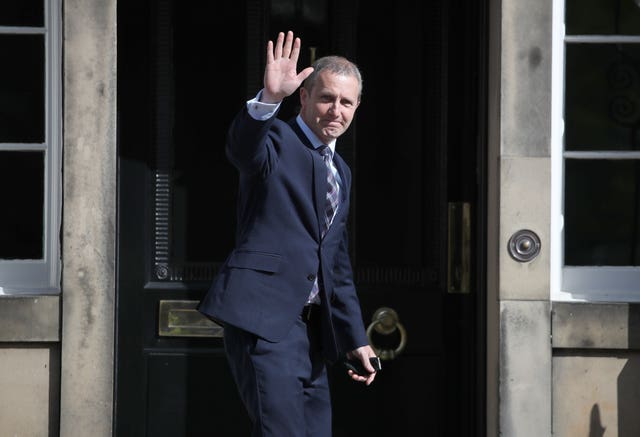Scotland will end its current traffic light system for international travel, but will not follow England in further easing Covid-19 testing for those entering the country, the Scottish Government has said.
From October 4, the green and amber lists will merge but the red list will remain.
Current amber list rules – which allow fully vaccinated people to avoid isolating – will be the default for non-red list countries.
Vaccinations that took place in 17 countries including Canada, Australia, Israel, and New Zealand will now be regarded as eligible under the rules, joining jabs in UK, the EU, the USA and the European Free Trade Association.

Eight countries – including Turkey, Pakistan and the Maldives – are also being removed from the red list with effect form 4am on Wednesday.
Travellers from Egypt, Sri Lanka, Oman, Bangladesh and Kenya will also no longer be required to hotel quarantine from that date.
But Scotland will not follow the UK Government’s decision to ease testing rules.
Those arriving north of the border will still be required to take a pre-departure test before returning – including from non-red list destinations – even if they are fully vaccinated.
The Scottish Government will also not follow their UK counterparts in allowing vaccinated travellers to replace the day two PCR test with a cheaper lateral flow test from the end of October.
In a statement, the Scottish Government said the testing changes had “not been adopted at this stage in Scotland due to significant concerns at the impact on public health”.
It said the testing of international travellers before and after travel is “an important part of our border health surveillance to minimise the risk of importing variants of concern”.
“The Scottish Government aims to maintain a four nations approach to international travel restrictions, but will need to carefully consider the risks associated with aligning with the UK Government,” it added.
Transport Secretary Michael Matheson said the Scottish Government “has concerns that the UK Government’s proposals to remove the requirement for a pre-departure test for some travellers will weaken our ability to protect the public health of Scotland’s communities”.
He said: “While we want to maintain a four-nations approach to these matters, we need to consider urgently their implications.”
He added that the changes Scotland was making would “provide a welcome boost to Scotland’s tourism industry”.
The 17 countries added to the eligible vaccinated traveller policy from October 4 are: Canada, Australia, Israel, New Zealand, Singapore, Antigua & Barbuda, Barbados, Brunei, Taiwan, Dominica, Japan, South Korea, Qatar, Kuwait, Malaysia, Saudi Arabia, Bahrain.
National clinical director Professor Jason Leitch said the Scottish Government would “take a little bit more time” to look at the testing rules.
He told BBC Radio Scotland Drivetime: “We are going to give some advice to the Cabinet Secretary for Transport Michael Matheson over today and yesterday and tomorrow and he will then make a choice. He’ll make a judgment.
“Now we are a little bit more concerned about that and that’s why we are taking a little bit more time. That feels like quite a big step at this stage of the pandemic for Scotland.”
He said one of the issues with the testing changes was that “if you only do lateral flows you can’t do genomic testing so you won’t know if you’ve got a new variant”.
A spokesman for Edinburgh Airport criticised the Scottish Government’s “decision to diverge yet again and further curtail Scotland’s aviation and travel industries in their recovery”.
He said: “We are now the most restrictive country in Europe yet there is no justification or health benefit to retaining testing measures, something clinical professionals and experts have themselves said.
“This is great news for airports in Manchester and Newcastle – passengers will now travel there to avoid expensive tests and save around £100 per person, taking money out of Scotland’s economy and threatening our airline capacity.”
He added: “This will harm our recovery, impact on Scotland’s economy and cost jobs and livelihoods across the country.
“It now seems the economy boosting step previously referred to will benefit England rather than Scotland.”




Comments: Our rules
We want our comments to be a lively and valuable part of our community - a place where readers can debate and engage with the most important local issues. The ability to comment on our stories is a privilege, not a right, however, and that privilege may be withdrawn if it is abused or misused.
Please report any comments that break our rules.
Read the rules here